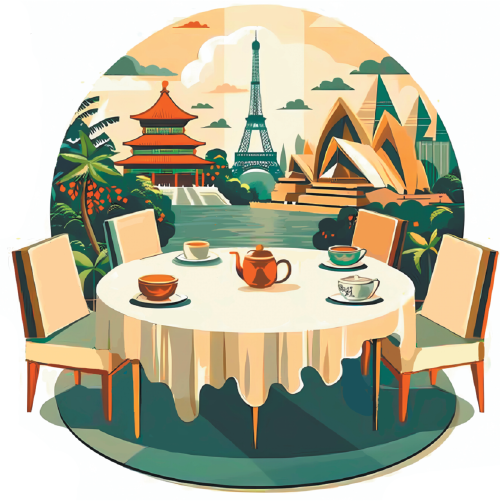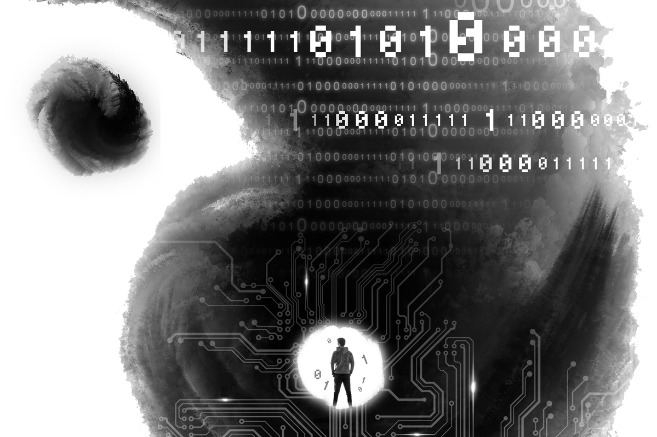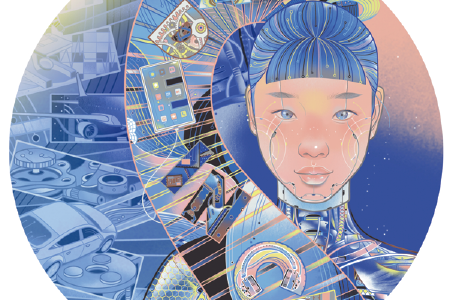Cherishing diversity


Mutual respect and dialogue essential to promote harmony among civilizations
A lesson should be taken from the West's attempts over the last several centuries to promote its own civilization as the most advanced, implying that others should emulate it. The West used its vision of civilizational hierarchy, with the West situated at the very top to justify colonial domination over other peoples and places. We see elements of this sense of entitled supremacy being rolled out daily to smear the cultural and economic advances of non-Western societies such as China. This is the ongoing legacy of civilizational bias.
With a history of 5,000 years, China is the world's oldest continuous civilization. During this time, Chinese civilization has created a treasure trove of cultural wealth covering all fields from the humanities to science and technology. As a testimony to its enduring legacy, China has 57 UNESCO World Heritage sites placing it at No 2 behind Italy which has 58.
There is no one single agreed-upon definition of "civilization".Indeed, attempting to pin down a single definition is counterproductive as it leads to the folly of making lists of things to "include" and "exclude". We end up wielding disrespectful dichotomies that label some peoples as "civilized" and others as "uncivilized". The only criterion we need to agree upon is that all human "civilizations", no matter how "small" or "large", or how "old "or "new", are valuable manifestations of the human experience.
The 78th session of the United Nations General Assembly recently unanimously adopted a China-proposed resolution, designating June 10 as the International Day for Dialogue among Civilizations. This is part of efforts by China and the international community to promote intercultural communication and understanding, something very much needed in our contemporary world. It builds upon other efforts of China such as the Global Civilization Initiative.
The UN resolution states that civilizations and cultures take diverse forms across time and space and flourish in contact with others and therefore should be preserved, enhanced and handed on for the benefit of current and future generations as a record of human experience and aspirations. The resolution does not seek to provide a definition of what constitutes a "civilization". And rightly so. Every civilization and every culture, represents the material and spiritual results of the collective interaction of humans with the physical environment over time. Every civilization has something profound to share with the rest of humanity based on its own rich experience. Let's take two examples, drawing upon the cultural wealth of Chinese and Australian civilizations.
The concept of he in Chinese civilization dates back several thousand years. It appears in Yijing (The Book of Changes) and Shijing (The Book of Songs), two ancient Chinese classics. He signifies harmony, balance, and unity. It emphasizes the importance of peaceful coexistence and mutual respect among individuals and groups (yi he wei gui). It stresses striving for harmony between humanity and nature (tian ren he yi). In contemporary contexts, he can be a guiding principle for promoting diversity and harmony between cultures and civilizations. By fostering an environment where different cultures are valued and respected, we can create a more inclusive world where diverse perspectives coexist and enrich each other, leading to greater global understanding and cooperation.
In contrast to China, Australian civilization could be said to be one of the world's youngest civilizations. It is a composite of the ancient culture of Indigenous Australians, European settlers and the cultures of many non-Western peoples, including from China, who have migrated to Australia since 1788. Nearly half of Australians were either born overseas or have a parent who was. Thus, one virtuous element of Australian civilization is its strong commitment to multiculturalism and the promotion of a diverse, inclusive society. Australia is known for its acceptance and celebration of people from various cultural, ethnic, and religious backgrounds, which has significantly contributed to its social harmony and cultural richness.
All civilizations have something important to contribute to the human experience. As humanity moves forward in the 21st century, it confronts a myriad of serious challenges. Genuine and respectful dialogue between civilizations and cultures is essential. These efforts, of course, cannot be restricted to just one day per year. They must be ongoing and conducted at many levels between nations and peoples throughout the world. We mustn't repeat the mistakes of the past and attempt to define what a civilization is or isn't. Every "civilization", no matter how small or large, old or new, deserves a seat at the table. The International Day for Dialogue among Civilizations is a valuable opportunity to focus international attention on the importance of dialogue between civilizations and cultures. China should be lauded for its efforts in this field for working toward promoting a "confluence "rather than a "clash" of civilizations.
The author is a member of the faculty of geographic sciences at Beijing Normal University. The author contributed this article to China Watch, a think tank powered by China Daily. The views do not necessarily reflect those of China Daily.
Contact the editor at editor@chinawatch.cn.
































